The Feminine Mystique
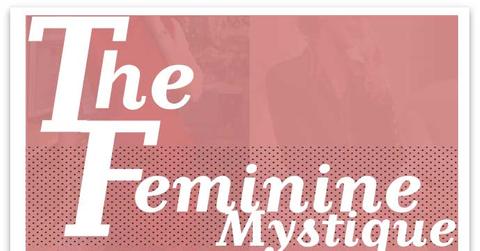
Growing up, there were three women I admired most: Mary McDowell (my paternal grandmother), Armon Smith (my maternal grandmother), and Clair Huxtable. In my eyes, these women personified strength, grace, class, and were fierce. They showed me that women can create their own lanes, and that my life could be whatever I wanted it to be. They were the definition of what it meant to be a woman.
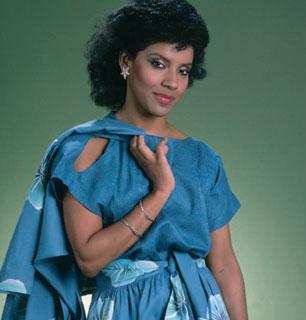
My paternal grandmother, the strongest women I know, Mary McDowell or Nanny as I call her worked at the University of Dayton for 39 long and hard years. She raised three children, put two of them through college, and saw my father off to the Army. From the earliest I could remember, Nanny wasn’t married. She became a single parent in 1975, when the union between her and my grandfather came to an end. And it never struck me as unusual that when I’d go to visit Nanny my grandpa wasn’t there. I never even asked questions until I got older. But even as breast cancer threatened to take her life, she went to work, she fought, she triumphed, and she survived. She was my strength even before my conception. My Nanny was my first glimpse of what it was like to be a strong, single woman. And I was okay with that.
My maternal grandmother, Mrs. Robert Smith, or De De as we all call her is tough. But she’s also beautifully sensitive which is one of the reasons why I think my grandfather decided to marry her 47 years ago. With the unpredictability of return, my grandparents married before my grandfather went to Vietnam. Upon his return, De De remained a housewife and raised their three children. She did not provide financially, but she made sure my mother and her sisters had three meals a day, clothes were clean, homework was done, and despite three children running around, my grandfather came home to a spotless, peaceful environment. My De De taught me that being a housewife was not a bad thing, that it required many things, patience being at the top of that list. And I was okay with that.
My Nanny tells the story of how everyone would have to tape episodes of The Cosby Show for my older brother and I. Yes, while other kids were watching cartoons; my brother and I were wondering what it was like to be Theo and Rudy. We loved the Cosby’s and not only because my grandfather had an uncanny resemblance to Heathcliff Huxtable, but because their lives closely resembled the connection we shared with our families. Close, tight-knit, fun.
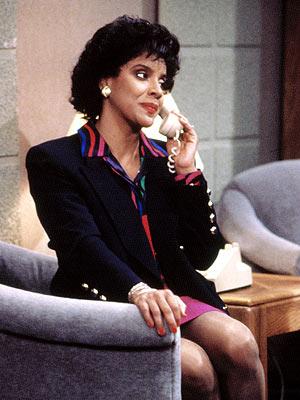
I especially loved Clair, though. Clair was sophisticated, beautiful, educated, outspoken, and could get you right in line with the cut of an eye. I thought all black women were like her or if not they should take notes. Clair Huxtable was the first woman I was introduced to with a professional career, one she obtained from earning her law degree. She didn’t compromise her career for domestic life. She went to work, came home to a host of issues (some Cliff couldn’t fix or made worse), she cooked, made sure the kids cleaned, and that Cliff was taken care of and eating right. Clair Huxtable was perfect. Men wanted to marry her, and women saw themselves in her.
She was like our black superwoman. And I was okay with that.
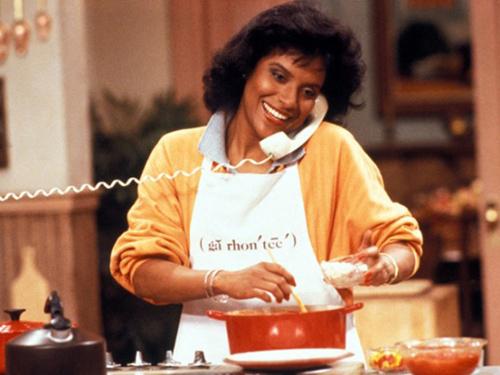
In my eyes, all of these women defined the complexity of what it was and still is to be a woman.
A few weeks ago I read an article on Jezebel.com, titled, “If We’re Going to Empower Girls, We Owe Them A Reality Check.” In the article, the writer Tracy Moore states that she feels the gains of the feminist movement are so in the water now, and raises the question, “shouldn’t we be teaching them [our daughters] how utterly fucked the world still can be for women, instead of promising the moon and watching them hit the roof?”
Moore’s article had the wheels in my brain turning.
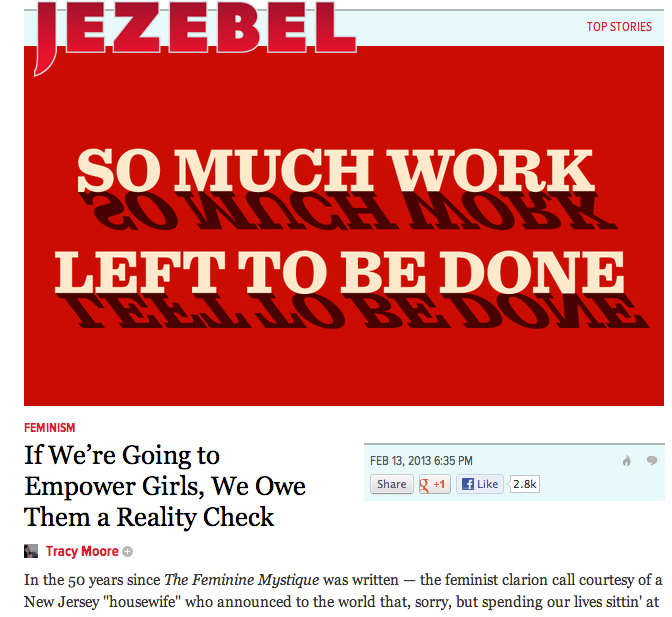
Are we as women doomed from the start, or is it possible that we can overcome this archaic way of thinking that leaves us with a contrite conscious about moving onward and upward?
Is it impossible for a woman to really be anything she wants to be?
Are we still living with what Friedan coined, “the problem that has no name”?
Or are we simply still allowing men to brainwash us into believing the barriers we have overcome aren’t enough, and the ones we continually break down don’t mean a thing?
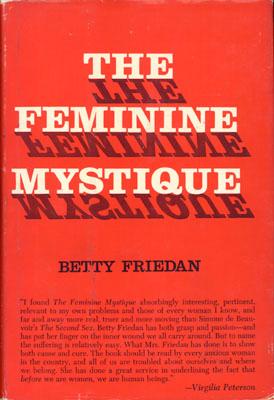
This year marks the 50th anniversary of Betty Friedan’s popular feminist manifesto, The Feminine Mystique. Moore’s article and many like it have been written not only critiquing the ideology, but questioning whether its once contemporary groundbreaking approach still applies today, or worse, if it’s regarded as irrelevant to the modern day woman.
Betty Friedan wrote The Feminine Mystique as a response to what we commonly refer to as “the system.” However, the system she complained of was the one designed to keep women in aprons and out of the office. This was the universal connection that 1950s and ‘60s housewives shared – the unhappiness that came with just being a wife and mother, leaving Friedan to wonder, “is this all?” It surely and obviously wasn’t enough.
While The Feminine Mystique played a major role in the foundation of women’s rights organizations and the progression of its movements, there are key elements that it happens to be missing.
The main issue happens to be its most commonly critiqued one. It seems to ignore both the plight AND success of women who look like me, and lived the lives of the aforementioned.
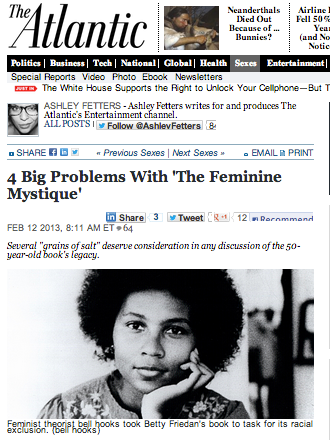
The Atlantic ran an article titled, “4 Big Problems with ‘The Feminine Mystique,’” in it the writer, Ashley Fetters made two things very clear about the book, “It’s racist. And it’s classist.” Fetters writes further about popular black feminist bell hooks’ critique of it in hooks’ book, From Margin to Center. If you’ve ever read this book, hooks discusses how women like Friedan were counterproductive to the movement, seeing as though she writes as if women of color and different classes were not women at all. But Fetters dissects the most pressing piece of the book that sums up the problem with The Feminine Mystique.
“Friedan’s famous phrase, “the problem that has no name,” often quoted to describe the condition of women in this society, actually referred to the plight of a select group of college-educated, middle- and upper-class, married white women—housewives bored with leisure, with the home, with children, with buying products, who wanted more out of life. Friedan concludes her first chapter by stating: ‘We can no longer ignore that voice within women that says: ‘I want something more than my husband and my children and my house.’’ That “more” she defined as careers. She did not discuss who would be called in to take care of the children and maintain the home if more women like herself were freed from their house labor and given equal access with white men to the professions… She ignored the existence of all non-white women and poor white women.”
I agree, and not because bell hooks and I happen to share the same ancestral roots, but because I am a woman. As racial inequality spurred — something Friedan can’t deny she witnessed, it would have only been right to base her argument from a full perspective. 50 years later, New York Times writer Gail Collins reinforces the idea that black women were not beneficial to the movement, in her interview for The Atlantic when she says: “Certainly, black women had other stuff to think about in the ‘60s than a women’s movement.”
Gail Collins is not a black woman.
I wonder…
Does “stuff” equate to being at the forefront of the Civil Rights Movement?
Was this “stuff” the fight for both racial and gender equality?
Or does “stuff” happen to be black women tending to the children and homes of white women, as they worked and rallied for “all women”?
I asked myself a million times what “stuff” is Gail Collins referring to.
My Nanny taught me early on that there was a difference in being alone and lonely. And that being alone was not a sign of weakness. Being alone did not mean you lacked love, but in many ways taught you to love and value self. My De De on the other hand taught me that catering to your husband wasn’t a sign of weakness either. That being a housewife didn’t prove to define a lack of ambition, but the abundance of care. And Clair Huxtable taught me that these two worlds could in fact co-exist.
The women who started the women’s rights movement didn’t found this on the idea that 50 years later women would still be complaining that we aren’t equal, and that it was a struggle being what we wanted to be, and maybe everything we fought for just wasn’t enough after all.
Hell no!
Yes, these women wanted us to continue to make strides, and yes we still have a long way to go, but teaching young girls that we are not equal will only reinforce low self-esteem. It is a crutch; it teaches girls that if once you don’t succeed, sorry, you never will.
I was raised to believe I can be anything I want to be.
Today that’s what liberates me the most. It’s not an us versus them thing, and if we make it that, women will not want to marry the men we constantly remind them they aren’t equal to. I agree with all the recommendations Moore makes in her article – teaching girls to discover their own sexuality, how to challenge the status quo, how to be creative, and the meaning of choice.
Because the women before me said all the things they weren’t supposed to say and more, today I am able to relish in the fruits of their labor. I can go to college and major in whatever I choose. I have the right to choose to never want children, and to believe in common law marriages just as I believe in the elaborate celebrations we call weddings. I believe that being $60,000 dollars in school debt will bring me opportunity and a career I love.
Most importantly when I look in the mirror I believe in myself.
So today, I thank Betty Friedan and bell hooks. I thank my grandmothers, and Clair Huxtable. I thank Danyel Smith and dream hampton for opening the gate that allows me to write about the culture I love. I thank all the women who taught me that girls ruled the world way before Beyonce made it an anthem.
One day, I will go home happily exhausted from a long day at work. I will cook, I will clean. And the next day I will wake up and I will achieve.
And I am okay with that.





